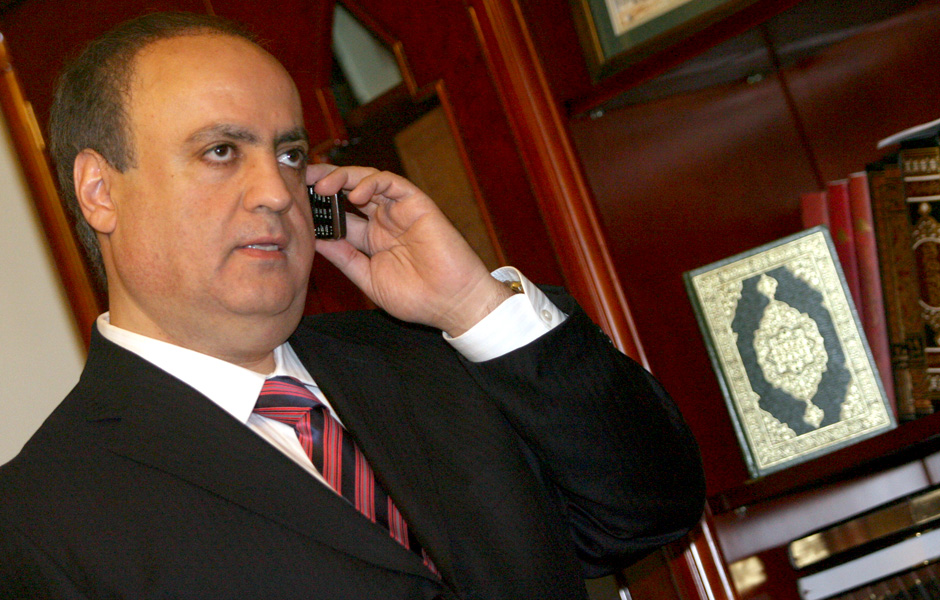AhlulBayt News Agency - West Asia region is witnessing fast-moving developments on different fronts. The very latest of them are the remarks by the Saudi and Turkish officials who have said that they were intending to intervene in Syria while the terror-hit country is seeing the Resistance forces making wide-ranging advances against the terrorists across the northern areas. Also, the Turkish artilleries have shelled the Syrian forces which are making progress in battle against the foreign-backed terrorists in the country’s north. Meanwhile, in the neighboring Lebanon, Saad Hariri, the leader of March 14 Alliance, has lashed out at the Axis of Resistance, apparently represented by Iran and Lebanon’s Hezbollah, while the different Lebanese sides are struggling to bridge the gaps between the deeply divided parties of the country to put an end to Lebanon’s intractable crisis. To discuss the issues in details, the Alwaght has conducted an interview with Wiam Wahhab, the former minister in the Lebanese government and the leader of Lebanon’s Arab Tawhid Party.
Q: The Syrian Arab army is making quick and decisive progresses in northern Syria, obviously in the terrorist-held Aleppo and Hama and it has earlier concluded victoriously the battle of Lattakia and provided the security of the city. How do you see all these advances against the terrorists and would they draw a Turkish-Saudi intervention in Syria as the two countries are promising? Essentially, is it possible for these two countries to send ground forces to Syria?
Wahhab: I believe that all these are Saudi and Turkish intimidations rather than being real intention for intervention. I think that Saudi Arabia is too weak to invade Syria by sending forces because it is currently caught in Yemen’s quagmire, therefore, I believe that these claims are simply worthless Saudi-Turkish howls provoked by the Syrian army’s advances against the militants. I also think that the Syrian forces would keep pressing ahead incessantly until they liberate Aleppo. Apparently, this decision is fixed by the leadership of the Axis of Resistance. On the opposite side, I think that a Turkish-Saudi intervention is unlikely. The argument has begun when Riyadh and Ankara have said they would intervene in Syria against the Syrian government, but presently there is a shift as the talk now revolves around a Saudi intervention in Syria under a US cover to fight the terror group ISIS, as Turkey intends to launch an assault against the Kurds in the Syrian territory. Thereby, everybody has his own calculations. I think that Russia would wait a Turkish intervention to humiliate (Turkish President) Erdogan. Additionally, I think that a trap is being set for Erdogan and once he gets caught, he would pay the (high) price.
Q: What do you think about Turkey’s anti-Kurdish campaign, the last episode of which was hitting the Kurds by Ankara in northern Syria?
Wahhab: It is obvious that there is a Turkish message and it is a clear: 'Turkey won't let Azaz, Syria, fall to the Kurdish militia.' However, the Turkish officials have not said that they would not allow the Syrian forces to take Azaz. This must be taken into account. Therefore, it is clear that Turkey’s military campaign is aimed only at the Kurdish forces and not at the Syrian army.
Q: Have cleansing the northern regions of the terrorists and recapturing of Al Zahra and Nubl towns stirred the Turkish assaults at the present time?
Wahhab: Of course Turkey was holding a scenario for northern regions of Syria, but entering Al Zahra and Nubl besieged northern towns and expanding in Syria’s north, the Resistance forces have foiled Ankara’s plans. This progress has thwarted the Turkish aims and certainly bolstered the Resistance’s trump cards. Therefore, we would wait to see what would be the outcome of all this screaming by Turkey and Saudi Arabia, which is not new.
Q: Do you think that all these threats and remarks are media vociferations?
Wahhab: In my viewpoint, it is all a howling and at least nobody would dare approaching the Syrian army.
Q: Regarding the Lebanese case, in the shadow of the present circumstances, what do you think about the remarks of Saad Hariri who, at the anniversary of March 14, has talked about the necessity of making amendments in the body of the March 14 Alliance?
Wahhab: Frankly, Hariri’s words clearly signaled that he was a Saudi politician more than being a Lebanese one. He talked, using Saudi Arabia’s logic, attacking Iran, Syria and the Resistance. He talked as if he was a Saudi national not a Lebanese one who should consider the national interests.
Q: How do you see Hariri’s attacking the Islamic Republic of Iran and saying that Lebanon would not be an 'Iranian province?' What was Hariri taking about? And are his remarks solely coming in reaction to Hezbollah’s remarks about Saudi Arabia?
Wahhab: Hariri’s bringing Iran under fire is irresponsible and it does not serve the Lebanese interests. We never work to make Lebanon an Iranian province, rather, we work to prevent Lebanon from becoming a Saudi emirate. This stands as a problem between us and Saad Hariri who wants Lebanon a Saudi emirate while we reject that.
Q: Finally, how is the outlook of presidency of Lebanon, especially after Hariri’s remarks?
Wahhab: I think that there is nothing new about the presidency, and it is delayed for the time being, waiting to see the region’s developments.
/129

